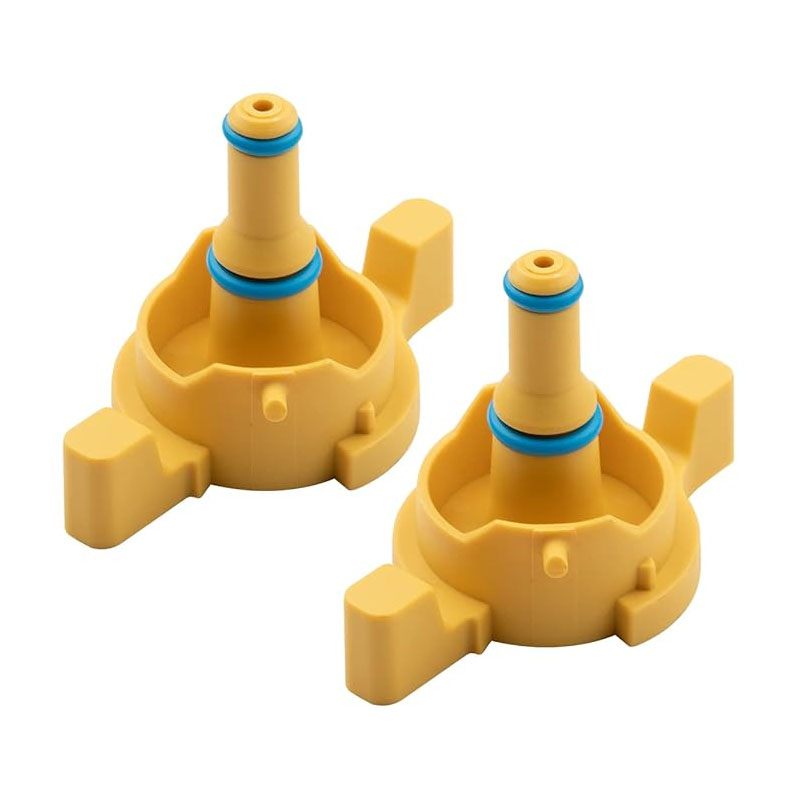A Comprehensive Guide to Choosing Wheel Bearing Seals for Your Trailer Maintenance and Upkeep
Understanding Wheel Bearing Seals for Trailers
When it comes to maintaining the performance and safety of your trailer, one often overlooked component is the wheel bearing seals. These seemingly small parts play a crucial role in ensuring that your trailer operates smoothly and efficiently, especially when hauling heavy loads over long distances. In this article, we will explore what wheel bearing seals are, their importance, and how to ensure they are functioning correctly.
What Are Wheel Bearing Seals?
Wheel bearing seals are designed to prevent contamination of the wheel bearings and to retain the lubricant within the bearing assembly. They are installed at the hub of the wheel and come in various types and materials, including rubber and metal. Each seal is specifically designed to fit certain sizes and styles of trailers, making it essential to choose the correct seal for your particular application.
Importance of Wheel Bearing Seals
1. Protection from Contaminants One of the primary functions of wheel bearing seals is to keep dirt, water, and other contaminants from entering the bearing assembly. Any foreign particles that infiltrate the bearings can cause premature wear and tear, leading to costly repairs or even bearing failure.
2. Lubrication Retention Wheel bearing seals help retain the grease or oil used to lubricate the bearings. Proper lubrication is essential to reduce friction, heat, and wear and tear, which ultimately prolongs the life of the bearings.
3. Safety Faulty or worn-out seals can lead to bearing failure, which significantly affects your trailer’s handling and stopping ability. In worst-case scenarios, this can lead to accidents on the road. Thus, ensuring your wheel bearing seals are in good condition is crucial for maintaining safety during transit.
Signs of Worn or Damaged Wheel Bearing Seals
Identifying issues with your wheel bearing seals can save you from bigger problems down the line
. Here are some common signs to look out forwheel bearing seals for trailer

- Grease Leakage If you notice grease leaking from the wheel hub, it could indicate that the seal has failed and needs to be replaced. - Unusual Noises Grinding, humming, or whirring noises while driving might indicate that the bearings are not properly lubricated due to a compromised seal.
- Excessive Heat If the wheel hub feels excessively hot to the touch, it may be a sign of insufficient lubrication or contamination.
- Vibration Unexplained vibrations while towing can also signal that there is an issue with your wheel bearings or seals.
Maintenance and Replacement
Regular maintenance is key to ensuring that your wheel bearing seals function effectively. Here are a few tips
- Visual Inspections Perform regular checks on your trailer to ensure that there are no visible signs of wear or leakage around the wheel hubs.
- Periodic Greasing Depending on your trailer's usage, you may need to periodically repack the wheel bearings with grease. This involves removing the wheel, cleaning the bearings, and applying fresh lubricant.
- Timely Replacement If you notice any of the signs mentioned earlier, it’s vital to replace the wheel bearing seals promptly. Doing so will go a long way in prolonging the life of the entire wheel bearing assembly and ensuring safe towing.
Conclusion
Wheel bearing seals may be small components, but their impact on the performance and safety of your trailer is significant. By understanding their role, recognizing the signs of wear, and conducting regular maintenance, you can ensure your trailer operates reliably on the road. Always consult your trailer's owner manual or a professional mechanic when in doubt about the condition of your wheel bearing seals to keep your journeys safe and enjoyable.
-
Understanding the Front Main Engine Seal: Purpose, Maintenance, and Installation
News Jul.29,2025
-
Understanding O-Rings and Seal Rings: Types, Applications, and Custom Solutions
News Jul.29,2025
-
Understanding Crankshaft Oil Seals: Rear Seals, Pulley Seals, and Their Role in Engine Integrity
News Jul.29,2025
-
The Importance of Front and Rear Crankshaft Seals in Engine Performance and Oil Management
News Jul.29,2025
-
Crank Oil Seals: Functions, Types, and Cost Considerations in Engine Maintenance
News Jul.29,2025
-
A Comprehensive Guide to O-Rings and Seals: Types, Materials, and Global Applications
News Jul.29,2025
-
Mastering Diesel and Performance Engine Maintenance: A Guide to Critical Oil Gaskets
News Jul.28,2025
Products categories















